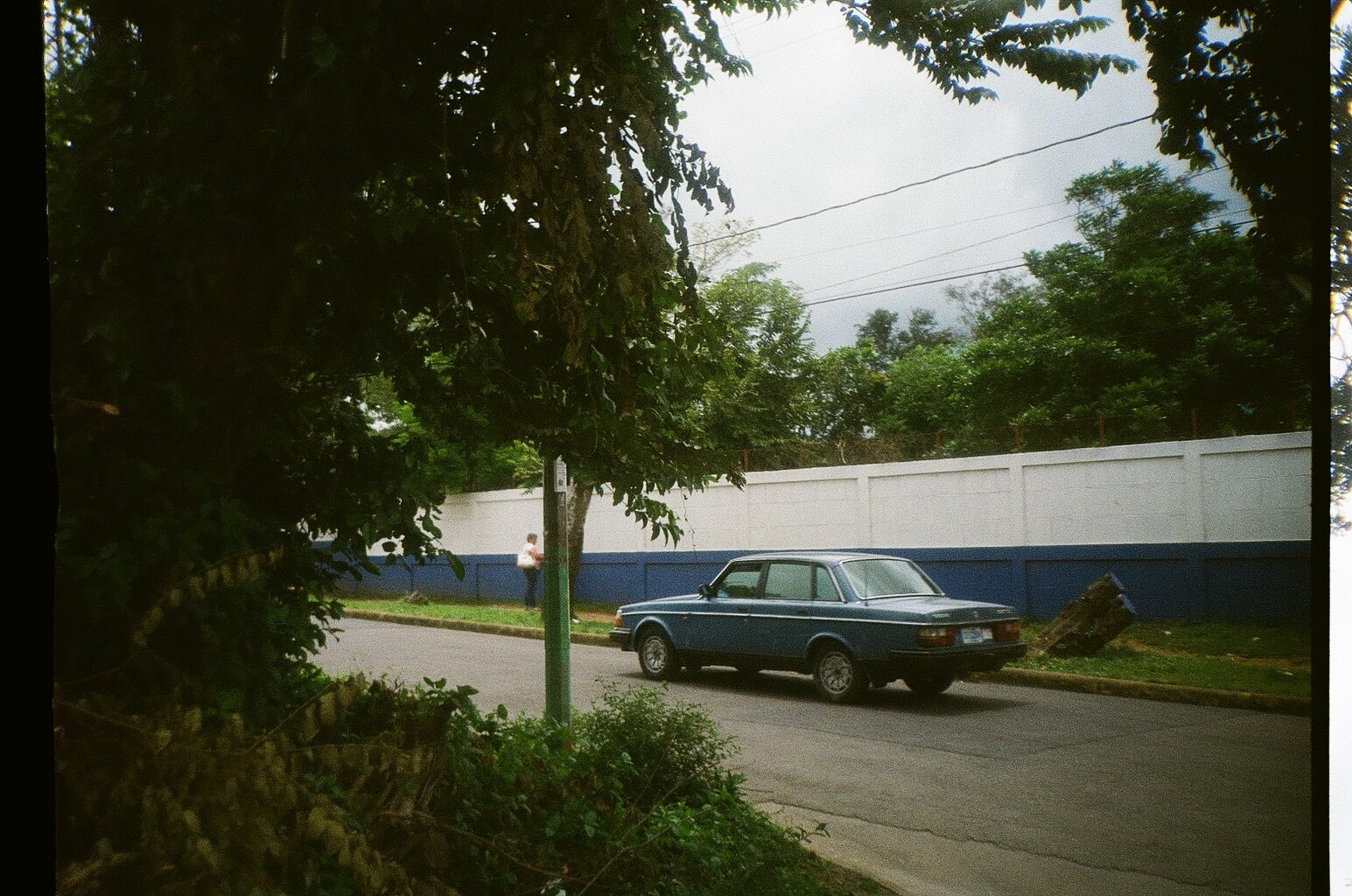The Sun and Everything
I recently graduated with filmmaking at the University of California, Irvine. As a part of my academic journey, I evolved from a timid analyst of films, to someone specifically tactful and sensitive to stories about Nicaragua. I would tell myself all the time that my art should reflect my upbringing and my people, and yet it wasn’t until filmmaking in my third and last year of college, that I understood how exactly I wanted to ground and shine light on my identity.
At first, “The Sun and Everything” was just a thought I carried with me to my visit to Nicaragua in 2019. I took a dozen rolls of film, and promised myself I would acknowledge the walls I had built up when I left at the age of 11. The title is inspired by the phrase “you can’t cover the sun with a finger and pretend it’s not there.” My intention with going was to remove the finger behind this big weight I carried with me and had since ignored. It all began when I saw #SOSNicaragua trending on my phone screen in 2018 and tagged were videos of government enacted violence onto student protesters marching in response to social security reforms. These events brought me back in touch with the family I had left behind. The lack of visibility for the pain which my country was suffering with the murder of hundreds reignited the guilt of my abandonment. When the dust settled, it felt appropriate for me to make sense of these feelings and to return to my parents, who I had not seen in eight years.
In the weeks that I was there, I wish I could say I did more than eat, swim, laugh and cry. I wish I could say I was comforting the timid testimonials of those who were there the year before. It was a topic of whispers, and I was a young woman afraid of trouble. I spent my time reflecting on my relationship with my parents, and the inner child I had left behind who, like the country, remained unchanged despite my absence. The little I gathered about the state of my home was from the dark tinted windows of the vans I was driven in, where I could watch the fear of families at church steps supervised by caravans of “pajaros negros” or cops dressed in black and heavily armed, stacked on the trunks of flag painted police cars. The little I could gauge of the suffocating environment I deducted from suicides at the mall’s ledges, broadcasted on Facebook live one day and guarded by security the next. I saw it all through the eyes of a tourist, but I felt it through the heart of a child.
When I came back, I wanted to make art of all the photos I had salvaged from my poor use of analogue film and to write about my reflections. The Sun and Everything started to become more of a self-assigned senior thesis, and for once, my filmmaking purpose was crystal clear. The deeper I looked, the more I found out about why this pursuit was so inextricably linked to me and my family. I am still at odds with my ambition. Feeling like I rarely ever put myself at risk the way others have, and itching badly to be the type of person who would. I find myself gripping this project and treading it back to the start. With my aging grandmother, my privilege, and the distance between me and all my relatives, all I have is the story I have regurgitated to myself from the little she told me each time I wrote a research paper.
This May I returned to Nicaragua, for seven weeks, where I captured the visuals for the feelings I struggle to articulate. Trying to make sense of the memories when I was little, growing up during one of the last fair elections held in Nicaragua. I don’t think I’ll ever erase the tourist perspective that comes with the diaspora of homeland removal. I am learning to accept that my truth is my truth, and not an all encompassing one. What I know, and what I don’t know, plays into the nuances of my perspective and it is still a worthy story to tell. As I enter the post-production phase of this project, I let go of my expectations of what it is that I should share with the world. I think sometimes our Latin voices have less to do with who understands them, and more to do with just getting it off our chest. I hope this documentary on the story of my family, and my country, helps the world to know Nicaragua as far more than a triangle of land in the middle of the continent. I hope The Sun and Everything can bring a sense of healing that is transcendental between different generations of Nicaragüenses; and to my family, a sense of return to our story, which we tucked behind a finger and told ourselves was too dark.
About the Author: Lily Soleil Correa Lewites is a professional photographer, model, makeup artist, and recent graduate from the University of California Irvine where she studied Film and Media with an emphasis on Digital Filmmaking. Lily is a Nicaraguan-American multifaceted artist with a passion for her country’s history as well as expanding Nicaragua’s reach in the art and film realm. Lily plans to debut her first ever documentary film The Sun and Everything next summer. Be on the lookout when it comes out! Connect with Lily at @selfbysoleil




